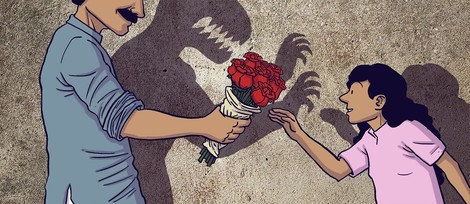Your podcast discovery platform
Curious minds select the most fascinating podcasts from around the world. Discover hand-piqd audio recommendations on your favorite topics.

piqer for: Climate and Environment Globalization and politics
Raksha Kumar is a multimedia journalist focusing on human rights, politics and social injustices. Since 2011, she has reported for The New York Times, BBC, Guardian, TIME, South China Morning Post, Foreign Policy, Scroll.in and The Hindu.
In March 2018, she was awarded the National Foundation for India Media Award for her reportage on land rights in India. In 2017, she was shortlisted for Kurt Schork Memorial Awards in International Journalism. For her work on land conflicts in India, she was awarded the Chameli Devi Award for Outstanding Media Personality in 2016.
As a reporter, her focus areas are land and forest rights of the most vulnerable communities. However, since these issues cannot be looked at in isolation, Raksha found herself increasingly reporting on armed conflict around resource extraction in places like Chhattisgarh and Kashmir.
In 2015, she wrote, shot and directed a documentary film on Rationalists in Contemporary India. It was aired by India's public broadcaster, Doordarshan. The film has been screened in 29 locations across the country until now.
The same year, Raksha was selected as a Chevening Fellow by the University of Westminster to research on Hindu Right in the UK. This helped Raksha build on her post graduate dissertation which was on Hindu Fundamentalists in India.
With a Fulbright Scholarship for Leadership Development, she went to the Columbia University in New York City to pursue a Masters in Science. As a student, she was offered the Scripps Howard Fellowship to report from Israel and the West Bank. Since 2011, Raksha has reported from 11 countries across the world.
Raksha worked as an editor at NDTV, leading English news channel in India. She was the editorial head of a two-hour prime time news show, where she lead a team of about 20 junior journalists.
A graduate of Lady Shri Ram College in New Delhi, Raksha was a dedicated student and a passionate public speaker.
Child Sex Abuse: Is There A "Good Touch" And "Bad Touch"?
The piece throws light on a completely contrary belief when it comes to child sexual abuse.
While recounting their experiences, many survivors of child sexual abuse speak about stimulation, arousal, excitement, thrill, pleasure, as well as feelings of being loved, accepted and gratification at the time when they were abused—especially in stages of grooming or the initial stages of abuse.
The piece talks about how guilt and shame are not the only feelings harboured by the survivors of sexual abuse. Apparently, some survivors feel wanted and loved.
The victims believe that they have an exclusive relationship with the abuser and that they are important to the abuser; that the abusers love them, care for them, and need them. This seduction process—also known as grooming—is critical to the process of entrapment.
However, things go downhill from there. And this active participation by the survivors of abuse makes them feel like they are a party to it. And that is where therapists come into the picture.
The "good touch, bad touch" approach to teach kids about sexual abuse is not effective enough, the author argues. Abuse starts with the "good touch" but turns into "bad touch". Here's a survivor's account:
“I cannot even remember the precise time when it had turned sexual,” recounted Rizwan in a session where he was working with me as his facilitator. “I cannot remember whether he made the first move or got me stimulated. I cannot remember whether I asked for it.”
Emotional intimacy and stimulation are often the most confusing. Therefore, we need a different approach to teach kids about sexual abuse.
